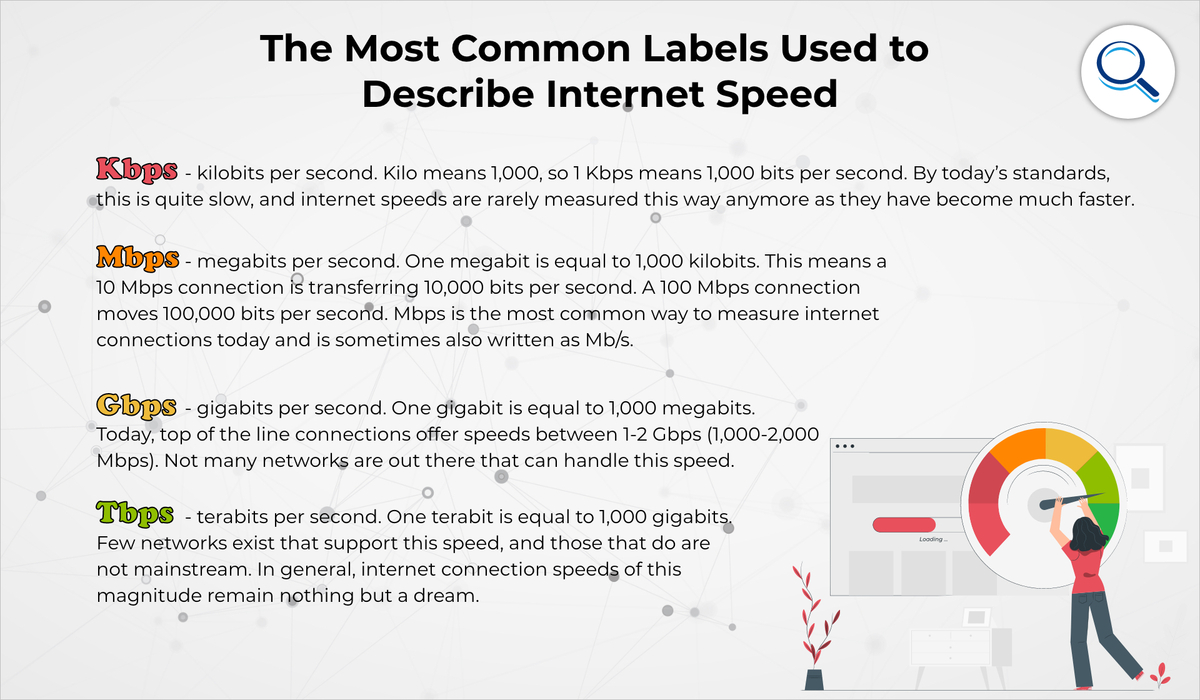Welcome convert kbps to gbps to the fast-paced world of internet speeds, where every second counts! Whether you’re a tech enthusiast or simply someone looking to upgrade their internet connection, understanding the difference between Kbps and Gbps is crucial. In this blog post, we will delve into the intricacies of converting Kbps to Gbps and help you make sense of all those numbers flying around. So buckle up and get ready for a journey through cyberspace as we unravel the mysteries of internet speed conversion!
What is a Convert Kbps to Gbps?
Internet speeds are measured in bits per second, and there are different units used to represent these speeds. One such unit is Kbps, which stands for kilobits per second. This measures the amount of data that can be transmitted or received in one second.
On the other hand, Gbps stands for gigabits per second and represents a much higher speed than Kbps. In fact, Gbps is 1,000 times faster than Kbps! It signifies the ability to transfer large amounts of data quickly and efficiently.
Converting from Kbps to Gbps involves a simple mathematical calculation. Since there are 1,000 kilobits in a megabit (Kb), and 1,000 megabits in a gigabit (Gb), you divide the number of kilobits by 1 million to get the equivalent value in gigabits.
For example, if your internet speed is 10 Mbps (megabits per second), you would divide it by 1,000 to convert it into kilobits per second (Kbps). Then you would divide that value by another million to obtain the speed in gigabits per second (Gbps).
Understanding how to convert from Kbps to Gbps allows you to compare internet speeds accurately and make informed decisions when choosing an internet service provider or upgrading your current plan.
So next time someone talks about their lightning-fast Gigabit connection, impress them with your knowledge of converting those humble Kilobits into blazing Gigabits!
What are the Different Types of Internet Connection?
When it comes to internet connections, there are several different types available. The type of connection you have can greatly impact your online experience. Here are some of the most common types:
1. DSL (Digital Subscriber Line): This is a popular choice for residential users as it utilizes existing telephone lines to provide internet access. DSL offers decent speeds and is widely available in many areas.
2. Cable: Cable internet uses coaxial cables to deliver high-speed internet access. It’s known for its reliability and fast download speeds, making it a preferred option for streaming and gaming.
3. Fiber Optic: Fiber optic connections use thin strands of glass or plastic to transmit data using light signals. This technology provides incredibly fast and reliable internet speeds, making it ideal for heavy online activities.
4. Satellite: If you live in a rural or remote area where other types of connections aren’t readily available, satellite internet might be an option for you. It relies on satellites orbiting the Earth to provide connectivity but can be affected by weather conditions.
5.
Wireless: Wireless connections use radio waves to transmit data between devices and routers without the need for physical cables. Wi-Fi is an example of wireless networking commonly used in homes and businesses.
Each type of connection has its own advantages and considerations depending on your needs, location, and budget.
How to Convert Kbps to Gbps
When it comes to converting Kbps (kilobits per second) to Gbps (gigabits per second), there are a few simple steps you can follow. First, let’s understand the difference between these two units of measurement.
Kbps is commonly used to measure internet speeds or data transfer rates. It represents how many kilobits of data can be transmitted in one second. On the other hand, Gbps is used for measuring higher-speed connections and represents gigabits per second – which is equal to 1000 Mbps or 1 billion bits per second.
To convert Kbps to Gbps, you need to divide the given value by 1 million (since there are 1 million kilobits in a gigabit). For example, if you have an internet speed of 5000 Kbps, dividing it by 1 million will give you your speed in Gbps: 5 Gbps.
It’s important to note that when converting between these units, it’s always essential to consider the context and purpose of your calculations. Understanding these conversions can help you compare different types of internet connections or evaluate network performance.
Being able to convert Kbps to Gbps allows us to better understand and interpret internet speeds and data transfer rates accurately. By following this simple conversion formula, we can make more informed decisions about our online activities and choose the right type of connection based on our needs
Conclusion
Conclusion
In today’s digital era, having a fast and reliable internet connection is crucial for both personal and professional use. Whether you are streaming videos, downloading files, or conducting online meetings, understanding the different types of internet connections and how to convert data rates can help you make informed decisions.
We have explored what it means to convert Kbps to Gbps and why it matters in determining the speed of your internet connection. We discussed the various types of internet connections available, from traditional dial-up to high-speed fiber optics. Each type offers its own advantages and limitations depending on your specific needs.
Converting Kbps to Gbps is important because it allows you to understand the potential speed of your internet connection in terms that are more familiar and relatable. By knowing how many kilobits per second (Kbps) equal one gigabit per second (Gbps), you can accurately gauge whether your connection meets your desired requirements.
While there may be online tools available for converting these data rates, understanding the formula behind the conversion can be empowering. It enables you to calculate conversions on-the-spot without relying solely on external resources.
Remember, when converting Kbps to Gbps:
1 Gbps = 1000 Mbps
1 Mbps = 1000 Kbps
By utilizing these conversion factors effectively, you will be able to decipher network speed specifications provided by Internet Service Providers (ISPs) or assess whether an upgrade is necessary based on your usage patterns.
In conclusion (!), knowledge about how to convert Kpbs into Gpbs will equip you with a better understanding of the capabilities of different internet connections. This will allow you to optimize your online experiences by choosing a connection that suits your needs best – whether it’s for browsing social media sites casually or working remotely while hosting video conferences seamlessly!
So go ahead! Dive deeper into exploring this fascinating world of data rate conversions – empower yourself with knowledge so that every time someone mentions their network speeds in Kbps or Gbps, you can confidently respond with a clear understanding











